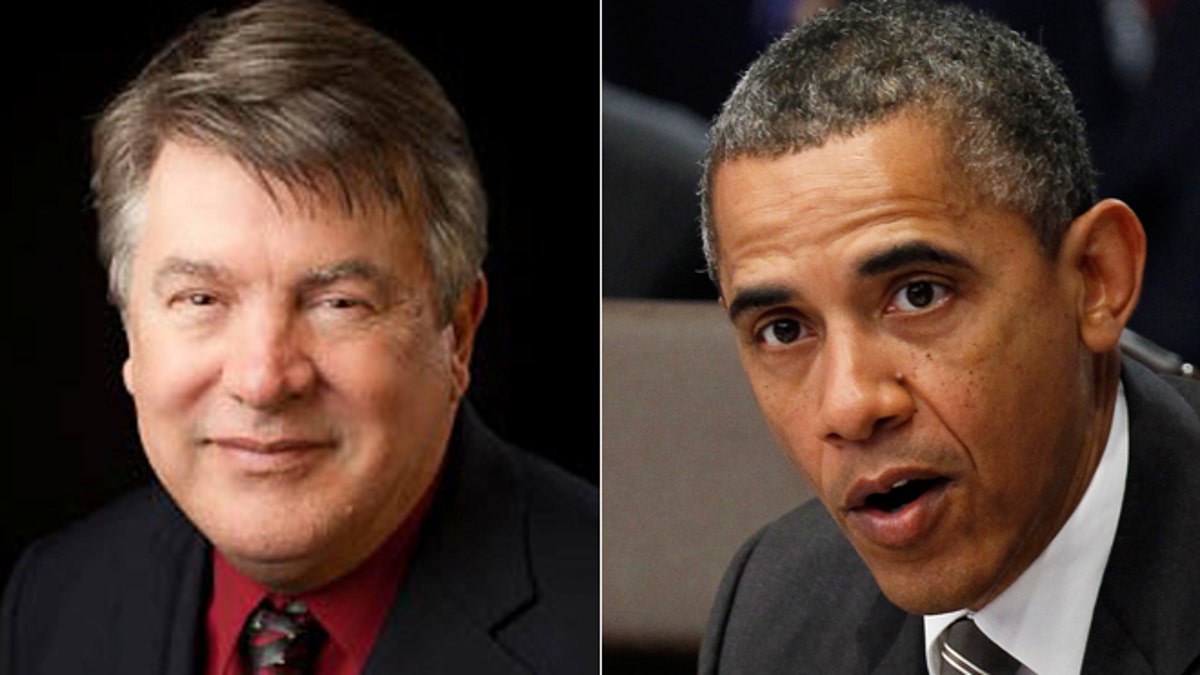
John Wolfe Jr. is challenging President Obama for the Democratic nomination. (John Wolfe for America/AP)
President Obama won both his primaries Tuesday, but faced fairly tight races -- facing minor challengers -- or no challengers at all.
In Kentucky's closed primary, the president won with 58 percent of the vote, as 42 percent of voters chose "uncommitted." In Arkansas, with 89 percent of precincts reporting, Obama won 59 percent versus 41 percent for John Wolfe, an attorney from Tennessee.
A recent independent poll had shown Wolfe trailing by as little as 7 points among likely Democratic voters in the state's largest congressional district, the 4th District.
The primaries Tuesday in Arkansas and Kentucky follow West Virginia's May 8 primary, in which federal inmate Keith Judd took 41 percent of the vote in the Democratic presidential primary.
Political analysts have given a range of explanations – from voter dissatisfaction to West Virginia's strong conservative Democratic base. Yet most agree the close finish there and possibly another in Arkansas will have no major impact on Obama winning the national party nomination.
The president has struggled in conservative states, particularly in parts of the Deep South. He took just 39 percent of the vote in Arkansas in the 2008 general election, compared to 59 percent for GOP nominee John McCain.
However, Arkansas has a Democratic governor and helped give native son Bill Clinton two White House terms.
Although the delegates that Wolfe might win will not be recognized at the national convention because he failed to comply with state party rules and didn't submit requisite paperwork.
“Barack Obama’s leadership has been shaped too much by the office and too little by the ideals that got him there,” Wolfe, who has little money or infrastructure, says on his official web site. “America needs an alternative. … The interests of the Pentagon, Wall Street and corporations have dominated Obama’s administration. And loyal Americans, taxpayers and small businesses are paying a heavy price as a result.”
Wolf won 12 percent of the vote in the Louisiana Democratic presidential primary in March, and he told the Washington Post he will have to double that number to make an impact in Arkansas.
The Associated Press contributed to this report.




